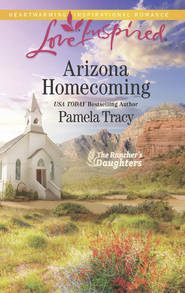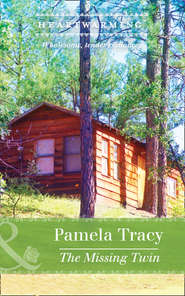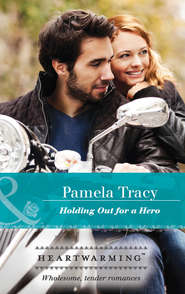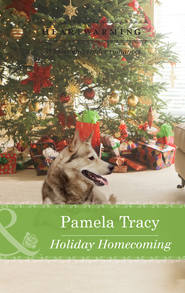По всем вопросам обращайтесь на: info@litportal.ru
(©) 2003-2024.
✖
Finally a Hero
Автор
Год написания книги
2019
Настройки чтения
Размер шрифта
Высота строк
Поля
“You built the main house?”
“Designed it, built it, maintain it.”
Before Jacob could say anything else, they arrived at the barn.
“I’ll introduce you to Harold Mull. He’s the head wrangler and foreman. When I’m not telling you what to do, he’ll be telling you. The vet’s here, too.”
Timmy had been keeping up, but now that they’d reached the barn, he hesitated.
“Come on,” Jesse urged him. “Nothing’s going to hurt you.”
“Ever seen a horse before?” Jacob asked.
Timmy shook his head.
“Well,” said Jacob, “they’re my favorite animal in the whole world. Next to dogs, of course.”
Timmy nodded as if he agreed.
Next thing Jesse knew, Jacob had both of them in the barn, standing next to a stall, as the vet took care of a horse named Harry Potter.
“My youngest daughter named quite a few of the horses,” Jacob explained. “She always had her head in a book. Consequently, we’ve got some very literary horses.”
An hour later, after introducing Timmy and Jesse to more horses and to the two wranglers, Jacob led them to a set of stairs in the back of the barn. The top of the stairs had a storage alcove on one side and the apartment on the other.
“We call this the loft and don’t lock the door. You can if you want. I’ll need to find the key.”
The front door opened to a living room with an ugly green couch, a mud-brown easy chair, a scratched coffee table and an old-fashioned television. Timmy, uninterested in the tour, immediately settled onto the couch. The kitchen was behind it. A door to the right led to a bathroom and bedroom big enough for only a bed, no dresser.
After showing Jesse around, Jacob cleared his throat and said, “You can start in the morning. Four o’clock. Harold will tell you what to do. Meantime, dinner is from five to six here.”
The door slammed behind him, and for the first time that day, Jesse had silence.
He didn’t trust it.
“Well,” Jesse said. “Let’s go bring the car down and unload our belongings.”
Timmy’s belongings, really. Jesse had a duffel bag.
No answer.
Timmy was curled into a fetal position on the couch, sound asleep. Jesse headed for the door, put his hand on the doorknob and stopped. Could he leave? Could he leave a five-year-old alone? What if Timmy woke up and got scared? Worse, what if Timmy woke up and wandered downstairs and out the barn door?
Five minutes later, Jesse carried the boy, who maybe weighed thirty-five pounds, all the way back to the main house. Eva stepped out on the porch.
Unlike most women, she didn’t holler, “Everything okay?”
Instead, just like at the restaurant, she watched him. Her expression indicated that she already knew what he was doing, plus all the things he didn’t know, and why and exactly how it would turn out.
He sat Timmy in the backseat—right where he first met the boy—and drove to the barn, parking by a blue truck, which must be the trademark for the ranch. Then he gently eased Timmy from the car and carried him upstairs and to the couch. Before he went back downstairs to unload the car, he snagged a blanket from the bed and covered the boy.
His son.
It took only ten minutes to unload the car and put their belongings away. Timmy’s clothes went in the bedroom closet, which actually had drawers. His games stayed in the living room under the coffee table. Then Jesse meticulously went through every crevice of the car. He found the owner’s manual but no title or registration receipt. He found a jack but no spare tire. After circling the vehicle, he realized the spare tire was already on the front passenger side. The only paper in the glove box—aside from receipts and other trash—had been the birth certificate. There was no other information on Timmy.
He had no clue if his son had been to preschool, the doctor or church. He was starting from scratch, both as an ex-con and as a father. A slight breeze pushed against him as he entered the barn and headed for the stairs up to his apartment. Instead of hundreds of convicts, he smelled horse.
He wasn’t sure which smelled worse.
Entering his apartment, all he could think of was that for the first time in more than five years, he had nothing to do, nowhere to be and no one to avoid. Instead, he had someone besides himself to take care of.
Walking to the window, he stared out at sweet freedom. It existed. He put his fingers on the glass, probably not bullet-proof, and then felt along the frame, finally getting his fingers just under the edge. It opened, and he breathed in the fresh air—hot, tinged with the scent of animals and roiling heat...and yes, something sweet.
Chapter Five (#ulink_3823c352-303c-5b68-afa8-cbe52c0aee78)
Currently, there were thirty-two people seated in the dining room of the Lost Dutchman Ranch. Most were already finished with their meals and just sitting around, talking. It was too hot to do anything else.
“We really need more than eighty guests,” Eva fretted, setting her tray on the picnic table closest to the kitchen door. That was another marketing strategy. She wanted enough guests and enough conversation to hide the sounds of clanking plates and Cook complaining about how slowly the potatoes were boiling.
“We have room for more than eighty,” Patti said. “We don’t need eighty. Your father’s not worried.”
“Of course not. He’s sitting with the couple renting our number five suite in the Rawhide section. The man used to rodeo like Dad.”
“Friend of your dad’s?” Patti asked.
“No, but he found our place because he did a Google search for Dad’s name. Apparently he’s putting together some sort of rodeo reunion, and Dad’s name was on his list. When he read about the Lost Dutchman Ranch, he decided to combine work and play.”
“They look rich enough. Wonder why they didn’t reserve a cabin?”
“Maybe they’re rich because they know how to be careful with their money.”
That reminded her. She’d watched Jesse at the diner peel bills from a small, dwindling roll. He was a man who didn’t have much money to be careful with.
“Actually,” Eva said, “they chose Rawhide because of the name. Thought it sounded Western. They plan to come again next year and stay in Boomtown.”
Eva’s father had named the lodging areas at the Lost Dutchman. The five suites were in a section called Rawhide. The five cabins were in Boomtown. The single bedrooms—seventeen of them, motel style—were in Tenderfoot.
“They’re perfect guests,” Patti said. “They already know how to ride, they like to hike without a guide, and the only complaint they’ve made had to do with the temperature going above a hundred and five.”
Eva glanced over at the people. Both were dressed in jeans and long-sleeve shirts, compared with the rest of the room—most in cotton shirts and shorts.
Shaking her head, she went back for seconds. Meals were buffet-style, a help-yourself kind of meal, with only one server walking around and making sure all the guests had what they needed.
The dining room was in the back of the main house. Picnic tables held guests, visitors and employees. The atmosphere was meant to be fun and relaxed. They did not serve a four-star meal. Tonight’s menu was barbecue pork, beans and potato chips. All homemade by Cook, an ex-rodeoer. His specialty was Mexican food, but actually there wasn’t a food type he couldn’t produce.
As Eva returned to her seat, she checked out the back of the dining room where a kids’ area—complete with a television for watching movies or playing video games—hosted about a dozen children of various ages.
At least ten of today’s customers were not guests of the ranch but townies and tourists.











